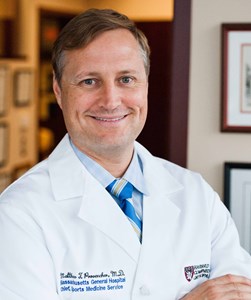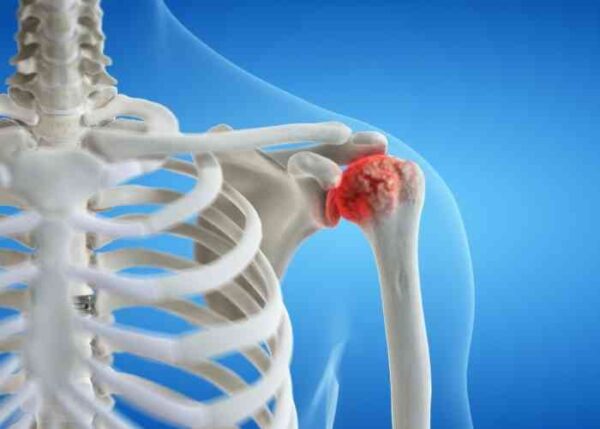Shoulder Arthritis Specialist

Are you experiencing mild to severe shoulder pain that typically worsens with activity? If so, you may have shoulder arthritis. Arthritis of the shoulder is typically found in middle-aged adults and the older population due to the natural aging process. Shoulder arthritis specialist, Dr. Matthew Provencher provides diagnosis and both surgical and nonsurgical treatment options for patients in Vail who have developed shoulder arthritis. Contact Dr. Provencher’s team today!
What is Shoulder Arthritis?
It is estimated approximately 20% of the older, adult population is affected by shoulder arthritis. Arthritis of the shoulder causes patients to feel chronic shoulder joint pain, stiffness, and weakness. Patients living in the Vail, Aspen, Colorado Springs and Denver, Colorado area suffering from shoulder arthritis are encouraged to contact Dr. Matthew Provencher, orthopedic shoulder specialist. Dr. Provencher is dedicated to treating patients afflicted with this debilitating disease and returning them to an active, pain-free lifestyle.
Shoulder arthritis is caused by wear and tear of the shoulder, leading to a breakdown of articular cartilage. Cartilage is the smooth, white coating on the ends of each bone at the joint area. The coating allows the joint to move smoothly and freely with no pain. As cartilage degenerates from wear and tear, the bones are exposed and rub against each other, causing patients to experience shoulder joint pain.
The two distinct joints within the shoulder that can become affected by arthritis include:
- The acromioclavicular (AC) joint- Located where the clavicle (collarbone) meets the acromion (bony roof of the shoulder joint).
- The glenohumeral joint- Located where the ball of the humerus (upper arm bone) meets the glenoid (socket).
Patients may experience one or more forms of shoulder arthritis, including:
- Osteoarthritis- Osteoarthritis is a gradual degeneration of cartilage from normal wear and tear. This form of arthritis most commonly occurs in highly active athletes and the older population.
- Post-traumatic arthritis- This form of arthritis occurs after an acute or traumatic injury to the joint, such as a hard fall or blunt force. The joint may still experience arthritis after the damage is healed because of mechanical changes within the shoulder joint.
- Rheumatoid arthritis (RA) – RA occurs when the human body’s own immune system attacks and destroys its own cartilage.
What are Shoulder Arthritis Symptoms?
The majority of patients report chronic shoulder joint pain, caused by grinding, and rubbing of bone against bone. The pain may be long, mild periods or sharp, intense bursts. Patients may also experience stiffness, weakness, a grinding sensation, and difficulty lifting or moving the arm.
How to Know you have Shoulder Arthritis
Dr. Provencher will perform a thorough physical examination and medical review to determine if shoulder arthritis is the cause of a patient’s shoulder joint pain. The physical examination is designed to determine the precise area of pain and tenderness. He may also perform a series of x-rays and an MRI to rule out other injuries and confirm the diagnosis.

How to Treat Shoulder Arthritis
The main goal of any shoulder arthritis treatment is to alleviate pain, weakness, stiffness, and other troublesome symptoms. Treatment is dependent on arthritis severity, symptom intensity, and the patient’s functional level.
What are Non-Surgical Treatment Options for Shoulder Arthritis?
Since shoulder arthritis is so common, many patients live with the condition for years before contacting Dr. Provencher. Initial treatment includes resting the shoulder, avoiding activities that cause pain and discomfort, applying ice and taking anti-inflammatory medications (NSAIDs). Physical therapy is commonly recommended by Dr. Provencher to strengthen the joint and return normal function. It is strongly suggested that patients work with the in-house physical therapists at Howard Head Sports Medicine to optimize their rehabilitation.
How to Surgically Treat Shoulder Arthritis?
Dr. Provencher typically recommends an arthroscopic shoulder surgery to trim away the inflamed synovial lining and remove pieces of degenerated cartilage in early stages of shoulder arthritis. The treatment does not cure the condition, but is designed to relieve shoulder joint pain and other symptoms.
In severe cases where non-surgical measures and arthroscopic surgery fails, Dr. Provencher may recommend a total shoulder replacement. This surgical treatment restores joint function by replacing the damaged ball and socket with synthetic surfaces.
It is important to note total shoulder replacement is not ideal for every patient. Young, active individuals are generally not ideal candidates since the average prosthesis life span is approximately 15 years. Dr. Provencher will recommend a joint restoration or preservation technique for younger, active patients in many cases.
For additional resources on shoulder arthritis, or to learn more about shoulder joint pain, please contact Dr. Matthew Provencher, orthopedic shoulder specialist serving patients in the Vail, Aspen, Colorado Springs and Denver, Colorado area.